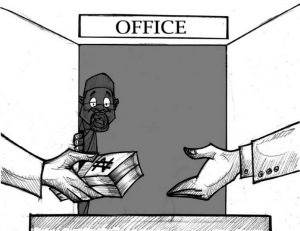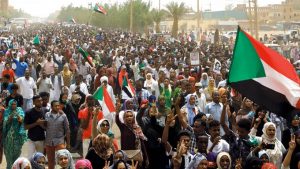Liberia: ‘No More Unfair Rubber Prices’ – Government, Stakeholders Adopt National Pricing Formula to Protect Farmers

Monrovia — The Rubber Planters Association and the Government of Liberia have taken decisive steps to put an end to unfair rubber pricing.
“No more unfair rubber prices,” declared T. Bannie Brown, Vice President of the Rubber Planters Association of Liberia (RPAL), as he read a landmark resolution ushering in a new era of transparency and fairness for Liberia’s long-struggling rubber farmers.
Speaking on behalf of the Liberia National Rubber Pricing Committee (LNRPC) at a press conference held Thursday, June 5, Brown officially announced the adoption of a government-sanctioned monthly pricing formula designed to protect farmers from being exploited by processors and middlemen.
For years, Liberia’s rubber sector–once a cornerstone of the national economy–has been plagued by disputes over pricing. Farmers have consistently accused buyers of arbitrarily setting prices below international market rates, leading to deep mistrust and a weakening of the industry’s viability.
In response, President Joseph Nyuma Boakai, in October 2024, established the Liberia National Rubber Pricing Committee to address the issue. The committee comprises representatives from the Ministries of Agriculture, Finance and Development Planning, Commerce and Industry, and Justice, as well as the National Investment Commission, RPAL, the Rubber Development Fund Incorporated (RDFI), and major processors including Firestone Liberia.
After months of technical deliberations, the committee agreed to a standardized formula for determining monthly rubber prices. According to the resolution, the official price is based on the average daily price of a ton of rubber posted on the Singapore Commodity Exchange (SICOM) during the previous month. The price is then adjusted for Liberia’s average 58% Dry Rubber Content (DRC). From this amount, deductions are made for production costs and a 10% processor profit margin, along with statutory levies–including 4% shared among the Government of Liberia, RDFI, and RPAL–resulting in the final net price payable to farmers at factory gates.
For the month of June 2025, the net price per ton of rubber delivered at the factory gate is set at US$545.00, with a gross price of US$574.06 before deductions. According to the resolution, any buyer offering less than the official price risks prosecution.
“This decision is a major victory for our farmers,” said Brown. “They have long suffered under exploitative pricing practices. Today marks the beginning of a system that is fair, transparent, and inclusive.”
To ensure ongoing compliance, the LNRPC will convene monthly to determine and publicly announce the price for the upcoming month. The official price notices will be widely disseminated and visibly posted at all rubber purchasing locations across the country.
The committee is also urging President Boakai to issue an Executive Order imposing a surcharge on the export of unprocessed rubber, to encourage domestic value addition and protect local processors.
“This mechanism isn’t just about numbers,” Brown emphasized. “It’s about restoring trust and rebalancing the entire rubber value chain.”
Industry stakeholders hailed the new pricing formula as a critical step toward revitalizing the sector. The reform, they said, will ensure dignity for farmers and sustainability for processors, while laying the foundation for long-term growth and rural development.
The resolution establishing the pricing formula remains in full effect unless formally revoked.
With thousands of Liberians depending on the rubber sector for their livelihoods, the government and its partners hope that this bold new approach will chart a path toward equity, empowerment, and renewed prosperity for one of the country’s most vital industries.
By FrontPageAfrica.



